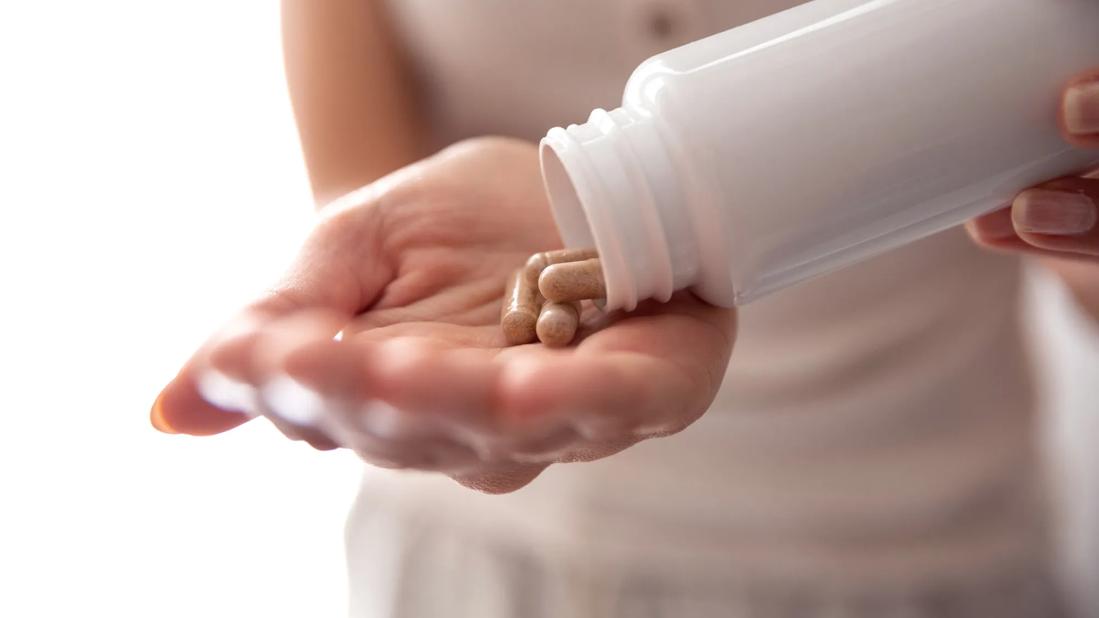There’s little evidence that probiotics cause weight loss, but having a healthy gut microbiome may set the stage for it

Weight loss can be challenging. So is learning about weight loss. There are so many personalities, promises and products in the conversation, it can be hard to know what works and what doesn’t.
Advertisement
Cleveland Clinic is a non-profit academic medical center. Advertising on our site helps support our mission. We do not endorse non-Cleveland Clinic products or services. Policy
In recent years, probiotics have become a bigger part of that conversation. Some believe that probiotic supplements — which support the friendly bacteria that naturally live in your gut — can help you lose weight. But are probiotics the weight loss tool we’ve been waiting for?
No surprise here: It’s complicated.
Registered dietitian and microbiome researcher Gail Cresci, PhD, RD, LD, explains why.
Our bodies aren’t just ours. They’re also home for trillions of microbes, including bacterial, viral, yeast and fungal cells. Some of those microbes make us sick. Others work with your body to keep everything in balance and all of our systems running smoothly.
When we use the word “gut,” we’re talking — broadly — about your gastrointestinal (GI) tract. The gut is responsible for digesting and absorbing your food and drink, as well as creating and eliminating waste.
You have bacteria throughout your body, but your colon and large intestine are the motherlode: They’re full of the stuff. That bustling bacterial city is called your microbiome. And it’s at its best when it’s populated with lots of different kinds of good bacteria (microbiota).
If your microbiome isn’t varied enough, or the balance of good bacteria to bad bacteria is off, it can impact all sorts of important bodily functions — including several that are important for regulating weight. Let’s take a look at a few.
Advertisement
The food you eat doesn’t just feed you. It feeds the bacteria in your gut, too. If your microbiome isn’t healthy, it might not break down food as efficiently. That can make it harder for your body to absorb and store the nutrients and healthy fats it needs from food.
But that’s not all. Some of the bacteria in our gut use the food we eat to produce nutrients that we need to stay healthy. When your microbiome isn’t in balance, that process gets disrupted.
When the balance between good and bad bacteria in your gut is thrown off, it can cause an inflammatory response. In some cases, this imbalance can be severe enough to contribute to autoimmune disorders.
When we have too much inflammation in our body, it impacts our endocrine system, creating hormone imbalances and making it harder to process insulin. Insulin resistance can make it easier to gain (and harder to lose) weight.
If your gut microbiota can throw off your endocrine system, that means it can mess with your appetite, too. That’s because hormones — like leptin, ghrelin and more — are in charge of signaling sensations like hunger and fullness.
Years ago, Dr. Cresci says shares scientists discovered that gut microbiota looks different in people who have overweight or obesity.
To better understand why, researchers studied microbiota transplants (known as fecal transplants). Doctors perform fecal transplants for people who have an overgrowth of bad gut bacteria called Clostridioides difficile. Simply put, they place poop from a healthy person into the colon of the person with C. diff to restore a healthy balance. Along the way, they made an interesting observation.
“Researchers have found that many patients who didn’t have overweight or obesity when they received a fecal transplant became overweight over time,” Dr. Cresci reports. “About 40% of Americans have obesity. So, it’s possible that getting a gut microbiota transplant from a person with obesity could be behind that unexpected weight gain.”
That theory created hope (and hype) that the opposite could be true, too. That simply popping a pill with the right gut microbiota could be the key to weight loss.
So, could probiotic supplements be enough to change your microbiota and induce weight loss?
We don’t really know. And fecal transplants aren’t likely to hold the answer.
“The problem with this logic is that fecal transfers include trillions of various microbes that include bacteria, viruses, fungi and yeasts,” Dr. Cresci clarifies. “With a probiotic, it’s likely a person could only receive a fraction of that, from one to just a few beneficial microbes. So, there’s no guarantee a probiotic supplement will affect weight loss.”
Advertisement
We may not know if probiotics can cause weight loss. But we do have reason to think they might support it. If an unbalanced microbiome can cause inflammation, interfere with digestion and change your appetite, it stands to reason that the opposite is also true. It’s possible that probiotics lay the groundwork for successful weight loss by improving your body’s ability to function.
It’s a reasonable theory. But there’s little scientific evidence at this time to back it up. That, in part, is because it’s rare for scientists to study probiotics and weight loss in isolation. Most studies include other weight loss practices, too, like diet and exercise. That makes it hard to know what (if any) results probiotic therapy can take credit for.
Where researchers have studied probiotics and weight loss alone, the results have been mixed. A 2020 study looking at synbiotics (a combination of probiotics and prebiotics) found they didn’t affect weight loss or body composition. Meanwhile, both a 2021 and a 2024 review found that probiotics may help prevent and treat weight gain. But in both cases, researchers stopped short of recommending probiotic therapy.
Probiotics’ main claim to fame is enhancing your good bacteria and keeping you in tip-top health. Even if a supplement won’t cause the weight to fall off, should you take one anyway for your gut health?
Advertisement
Maybe. But eating a healthy, balanced diet is the best option, according to Dr. Cresci.
“A balance of healthy sources of proteins, fats and carbohydrates is the most important factor in maintaining good gut bacteria,” she advises.
There isn’t a “probiotic diet,” so to speak, but this much is true: Most fad diets aren’t doing your microbiota any favors.
“The friendly bacteria survive and thrive when fed high-fiber foods like fruits, vegetables, whole grains and legumes,” Dr. Cresci says. “A low-fiber diet — an eating plan that’s low-carb and high-protein or high-fat — reduces the number of good bacteria.”
And the foods you should be avoiding for a healthy microbiome? It’s all the usual suspects: highly processed foods, foods with added sugar or sweeteners and saturated fats.
Exercise is also crucial for maintaining a healthy microbiome. And research suggests that smoking, excessive drinking and poor sleep can upset the balance of microbiota in your gut.
Take all these findings together, and the message is clear: A healthy lifestyle and a healthy microbiome go hand in hand. Without one, you can’t really have the other. For some people, a probiotic could work alongside a nutritious diet and exercise regimen to shore up gut health. Talk to your doctor to see if it’s right for you.
Advertisement
Learn more about our editorial process.
Advertisement

This fermented food can feed your gut, help manage hunger and possibly curb colon cancer risk

Yogurt, sauerkraut, kimchi and other fermented foods are a good way to get those beneficial microbes

Probiotics are ‘good’ bacteria that help your gut, while prebiotics are foods that fuel the bacteria

Taking your probiotics in the morning with food is a great strategy — but consistency is key

Maintain a healthy vaginal microbiota with the help of good bacteria

The caffeine and natural acids in coffee may trigger acid reflux, but there are ways to lessen the effects

Wait a few hours, then start with water or ice chips, graduating to clear liquids and then, soft, bland foods

Wearing a scarf, adjusting your outdoor activities and following your asthma treatment plan can help limit breathing problems

Your diet in the weeks, days and hours ahead of your race can power you to the finish line

When someone guilt trips you, they’re using emotionally manipulative behavior to try to get you to act a certain way